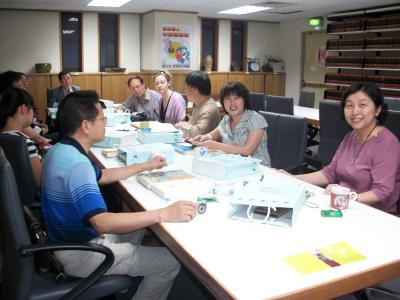The 6th International Conference & 11th National Conference on Qing Dynasty Studies, organized by the Center for Ch'ing Dynasty Studies of National Sun Yat-sen University in China's Taiwan Region, co-organized by the Institute of Chinese Literature and Philosophy of Academia Sinica, the College of Liberal Arts and the Department of Chinese Literature of Sun Yat-sen University in China's Taiwan Region, the Institute for Translation of Korean Classics, and the Department of Chinese Literature at Seoul National University, was held in Taipei on October 8, 2010. The conference was divided into four main themes: International Sinology, Chinese Literature in Korea, Literary Theory and Criticism, and Studies on Poetry, Ci Poetry, and Fiction, and caused lively and in-depth discussions on various issues in international Sinology, Qing Dynasty studies, and Qing Dynasty literature research. Scholars from the China University of Labor Relations (CULR), Chinese Academy of Social Sciences, Fudan University, Shanghai University, Nankai University, and Nanjing Normal University, as well as scholars from China's Taiwan Region and Hong Kong Special Administrative Region, the United States, Australia, Japan, and South Korea, gathered to engage in extensive and in-depth academic exchanges on the above-mentioned themes. Associate Professor He Yan from the School of Culture and Communication of the CULR attended the conference.
During the three-day conference, renowned poet Yu Guangzhong and well-known historian Wang Rongzu were among the participants who presented papers. Associate Professor He Yan delivered a keynote speech titled "On the Characteristics of the Complete Collection of Tang Poetry Anthologies in the Qing Dynasty" at the conference.
Subsequently, the delegates visited the National Central Library, the Center for Chinese Studies, universities and the National Palace Museum in China’s Taiwan Region for academic exchanges. The seven-day conference and academic exchanges have deepened our understanding of the cultural identity shared by both sides of the Taiwan Strait and the urgent desire of scholars from both sides to further enhance cultural exchanges.
(School of Culture and Communication)

